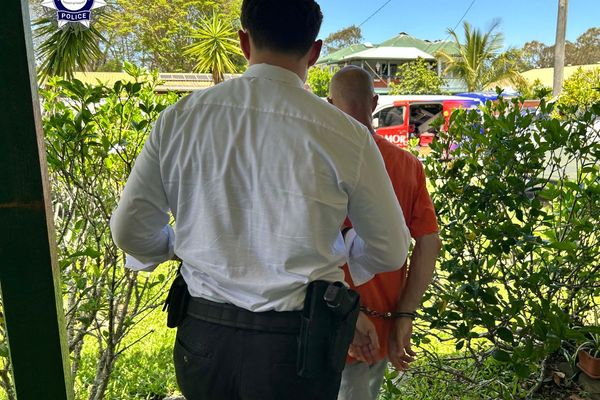
A relative going missing is already one of the most difficult situations any family can go through. But when a loved one vanishes abroad, language barriers, cultural differences and significant financial challenges can make it even harder.
The high-profile investigation into the disappearance of Jay Slater, 19, from Lancashire, who went missing after attending a music festival in Tenerife, concluded on Tuesday after four weeks. His mother, Debbie Duncan, who had flown out to the island soon after he was reported missing, said “our hearts are broken” after a body found by rescue teams was confirmed to be his.
The television presenter Michael Mosley, 67, went missing in June after going for a walk on the Greek island of Symi. His children flew out from the UK to help search for him, and his body was found four days later.
Across Europe and beyond, many other families are searching for loved ones who have disappeared, some of them in recent weeks.
Michael Frison, 25, from Chard in Somerset, has been missing since Saturday evening when he went for a walk in countryside near Luras, Sardinia. He had been visiting relatives on the island and volunteering on a farm.
Ben Ross, 26, a trainee barrister from Golbourne near Wigan who moved to Palma, Mallorca, after taking a break from studying, has not been seen since 10 July after his belongings were stolen from the beach and he later had a disagreement with his flatmates.
“Like any mother, no matter what age your children are, they are still your children. I just need to know my son is safe and well,” said his mother, Felix Robinson. “The last few days have been torture.”
While there have been several recent cases in the news, still “it’s not very common” for people to disappear while abroad, said Prof Karen Shalev, the director of the Centre for the Study of Missing Persons at Portsmouth University.
Shalev said data showed somewhere between 700 and 1,000 people a year did so, which was was minute compared with the annual cases domestically.
“It’s a fraction really of the overall number,” she said. “However, there may be substantial under-reporting.”
According to the UK National Crime Agency report for 2019/20, police recorded 155,211 people as missing.
Shalev said many reasons why people went missing were universal, such as mental health issues. But she said the risk of accidental death could be increased abroad because people were in unknown environments and may take part in more risky activities.
In the rare cases where this happens, for families “it’s hell”, she said. “I think what the public doesn’t understand is that UK authorities have no jurisdiction in other countries at all, so unless they are invited it is completely up to the local forces or law enforcement agencies to respond.
“And then you get into different cultures, different practices, the barriers of language. Some countries just do very, very little,” she added. “Unless there’s a suspicion of abduction or homicide, they don’t consider missing [people] an issue, particularly when it comes to adults.
“Families all of a sudden have to not only navigate the practicalities of searching for someone who’s missing, but they also have the added issues of time difference, language barriers, totally different cultures.”
And, she said, they “oftentimes will want to go out to where the person went missing from, that can be very, very costly and they don’t always have the funds to do that”.
While missing persons investigations are led by domestic police forces, the international law enforcement agency Interpol issues yellow notices – global police alerts for missing people.
Currently there are 69 yellow notices for missing Britons, including Madeline McCann who disappeared from a holiday apartment in Praia da Luz, Portugal, in May 2007, when she was three years old, and Claudia Lawrence, the York University chef who was reported missing when she failed to turn up for work in March 2009.
These can be requested by police forces in the country where the person is from or the one where they went missing, and are often used in cases of parental abductions, criminal abductions or unexplained disappearances. They are often used to help find people who may not be able come forward themselves.
Paul Joseph, the head of helplines and reconnections at the charity Missing People, said: “Often if people are away in a different place, the likelihood of them then maybe getting into trouble, being lost or being somewhere and not knowing how to access the right help might be greater.
“Also, people are on holiday and having a good time, and maybe they put themselves at risks they necessarily wouldn’t if they’re at home.”
Social media activity, conspiracy theories and online sleuths now leave many families conflicted about whether to seek help from the public.
Robinson said she “thought long and hard about appealing to the media” after seeing how Slater’s family were treated. Duncan said they faced a “constant barrage of conspiracy theories and wild speculation”.
But Joseph said it was imperative to report a missing person case to the police quickly and with as much detail as possible.
“Reach out for help as soon as possible,” he said. “The sooner a missing case is reported, the more likely the person is going to be found.”







